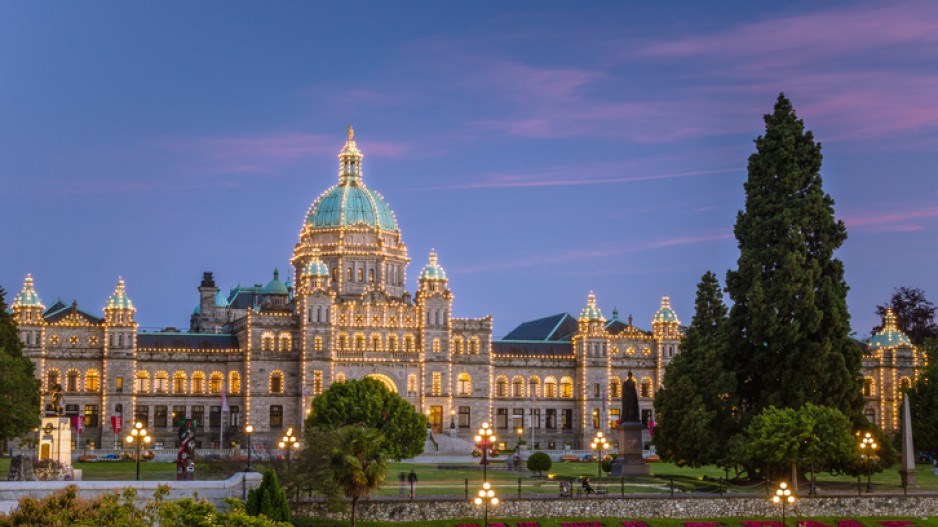From John Horgan’s perspective, calling a snap election last week was a realpolitik no-brainer. He rides high in the polls, and his political opponents are at a serious disadvantage.
But one of the reasons those opponents are at a disadvantage is that, throughout the pandemic, both the Liberals and Greens put partisan politics aside and provided unprecedented co-operation to get bills passed and emergency funding out the door. There was unanimous support, for example, for the Horgan government’s $5 billion emergency pandemic spending plan.
That makes it tough for the BC Liberal and BC Green parties to distinguish themselves from the BC NDP’s recent track record. They can hardly criticize government policies of the last six months that they supported.
“It’s 100% suicide to attack the NDP on any decisions over the past six months really,” said Ken Peacock, chief economist for the Business Council of BC.
No sooner was the election writ dropped last week than BC Liberal Leader Andrew Wilkinson and BC Green Party Leader Sonia Furstenau dropped the gloves and slammed Horgan for calling an “unnecessary” election.
“Not long ago, the lieutenant governor and B.C. health minister were complimenting all the parties for their collaborative approach to fighting the virus,” Wilkinson said. “And now John Horgan says he’s the victim of an unstable government? That’s ridiculous. There is no instability in Victoria.”
The Liberal platform won’t be out for a few more days. But Wilkinson last week drew some rough sketches of what might be in it, including what was described as “provocative” new environmental policies.
“We’re looking at a change in thinking about things like energy in British Columbia,” Wilkinson said, but offered no details.
Peacock wonders if the new policy will have something to do with carbon taxes, which have begun to squeeze energy-intensive industries in B.C.
“We at the business council are really pressing this government for some sort of relief to the additional costs that are being heaped on these exporters,” Peacock said.
Should the Liberals beat all the odds and win a majority, Wilkinson said a Liberal government’s priorities would include addressing homelessness and the “staggeringly high” rates of drug overdoses. He described the Horgan government’s approach to addiction and homelessness as “putting people in a warehouse and walking away.”
“We have to address homelessness jointly,” Wilkinson said, “and we have to address this growing wave of crime that’s starting to fill the news every night.”
Whichever party forms government, Peacock said addressing the housing problem in B.C. requires addressing the backlog of building permits within municipal government.
“If necessary, bring some force to the issue,” Peacock said. “Because at the end of the day, all municipalities in British Columbia are creatures of the provincial government.”
Some other key planks sketched out by the Liberals last week include:
•supporting the completion of the Trans Mountain pipeline expansion;
•cancelling labour agreements with unionized trades on projects like the Pattullo bridge replacement;
•ending ICBC’s auto insurance monopoly; and
•cutting taxes and red tape.
As for the Greens, despite the fact that the party formally propped up the NDP, some of their key positions differ from the NDP more dramatically than the Liberals.
The Greens are opposed to multibillion-dollar energy projects – LNG Canada and Site C dam – which both the NDP and Liberals support. Generally, the Greens’ view the resource sector – a pillar of B.C.’s economy – as a sunset industry.
“We should stop subsidizing fossil fuel companies and instead prioritize innovative and sustainable companies based in B.C.,” Green Leader Sonia Furstenau said in a letter released last week.
The Greens’ plan for resource industries is basically job retraining for workers to “transition away from jobs in sunset industries.”
Furstenau also called for more aggressive reform of forestry policies.
“We have a responsibility to protect what little old growth remains and ensure a value-added forestry industry that serves the needs of communities can take root in this province.”
The Horgan government released an old growth forest management strategy earlier this month that places a moratorium on 353,000 hectares of old growth forest and sets out plans for new forestry management zones.
In a September 23 campaign speech in Surrey, Horgan recapped his government’s main achievements since forming government three and a half years ago, including the scrapping of bridge tolls and the elimination of MSP premiums, which he called “the largest middle-class tax cut in B.C. history.”
But the elimination of MSP premiums was more of a tax shift than a tax cut because the BC NDP government created a new payroll tax for employers to replace the billions that MSP premiums raised. The NDP also hiked the minimum wage. Both policies have increased the cost of doing business for many employers.
The spending and tax breaks announced by the Horgan government so far this year have largely been economic triage to deal with the pandemic – all of it welcomed and applauded. What businesses want to hear now from leaders in the campaign are policies to assist in longer term recovery, and a good start would be a pledge to cut the PST in half for two years, Peacock said.
“That would be music to the business community’s ears.” •




